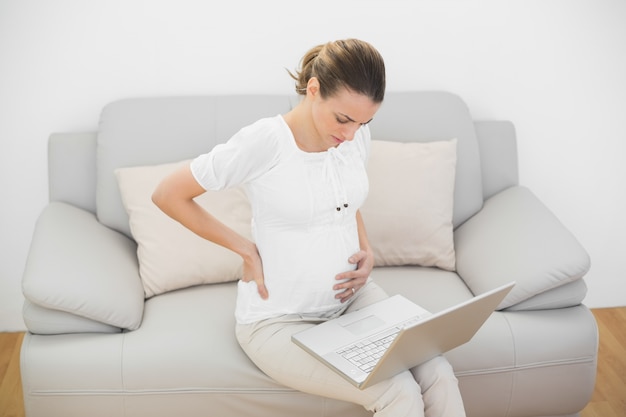Why Should Pregnant Women Be Aware of Kidney Stones?
Kidney stones are not only extremely painful but can also affect the fetus and complicate childbirth, sometimes even leading to preterm labor. Addressing kidney stones early is crucial for significantly reducing the risk of premature delivery.
What Causes Kidney Stones?
Fluid Intake
Not drinking enough water can lead to highly concentrated urine with nutrients like calcium or phosphorus, which increases the risk of developing kidney stones.
Your Genes
Genetics also play a role in kidney stone formation. Families with a high incidence of hypercalciuria, a condition where an abnormal amount of calcium is excreted in the urine, are at a higher risk of developing kidney stones.
Bowel Irritation
If you have gastrointestinal sensitivity, be aware that chronic inflammation of the bowels can increase your risk of developing kidney stones.
Calcium Intake
Pregnant women need additional nutrients, including calcium. However, too much calcium can strain the kidneys. Additionally, calcium absorption increases during pregnancy, which can elevate the risk of developing stones.
UTIs
Pregnancy-related anatomical and physiological changes can increase a woman’s risk of developing kidney stones. Chronic and persistent urinary tract infections (UTIs) may indicate the presence of kidney stones. Pregnant women with UTIs should discuss this concern with their healthcare provider.
What to Do?
For most people, passing a kidney stone is a painful experience, but around 70 to 80 percent of stones pass spontaneously without intense medical intervention. If a more aggressive approach is needed, surgery might be considered or required.
X-rays
X-rays are commonly used to detect kidney stones, but their use during pregnancy is generally discouraged due to the radiation emitted, which could affect the developing fetus. With limited research on the exact effects of radiation on both the mother and the unborn child, minimally-invasive approaches like ultrasound are often preferred for pregnant women.
Ureteroscopy
A ureteroscopy involves inserting a thin tube through the urethra to the site of the kidney stones to remove them. Given the relatively low complication rate of ureteroscopy during pregnancy, it is becoming an increasingly popular method among physicians for stone removal.
Shockwaves
Shockwave therapy uses sound waves to target and fragment stones and is a widely-used, minimally-invasive treatment. However, its safety for pregnant women is unclear. The potential risk to the developing fetus from sound waves means that most researchers and experts discourage this practice during pregnancy.
Patience
Conservative management, such as bed rest and hydration, can help encourage the passage of stones. Most pain medications are contraindicated during pregnancy as they may interfere with fetal health. If you need pain relief for kidney stones, consult your healthcare provider about safe options during pregnancy.
Preventing Kidney Stones
The best way to avoid kidney stones during pregnancy is to maintain healthy kidney function by staying hydrated, eating kidney-supporting foods, and maintaining a healthy weight. Although there are no guarantees, these measures can help reduce the risk of developing kidney stones.

